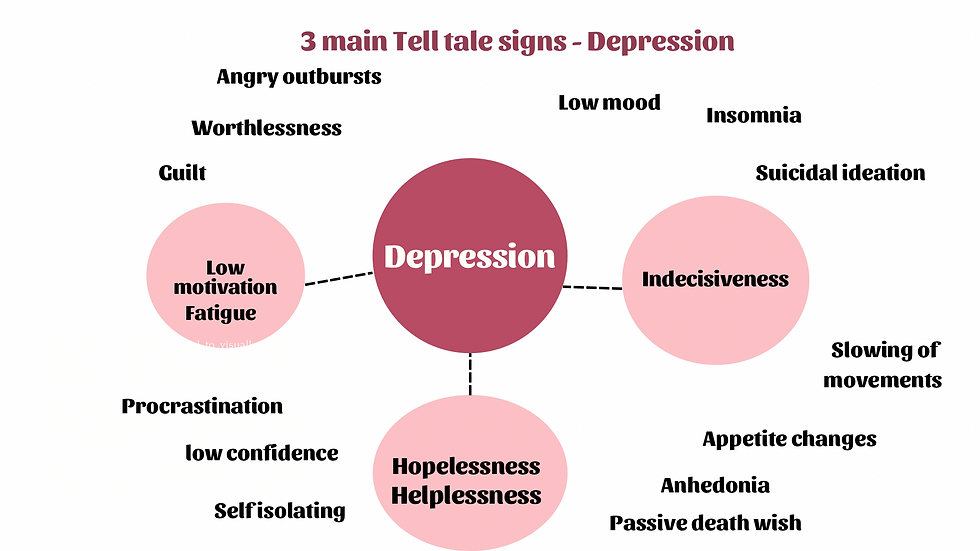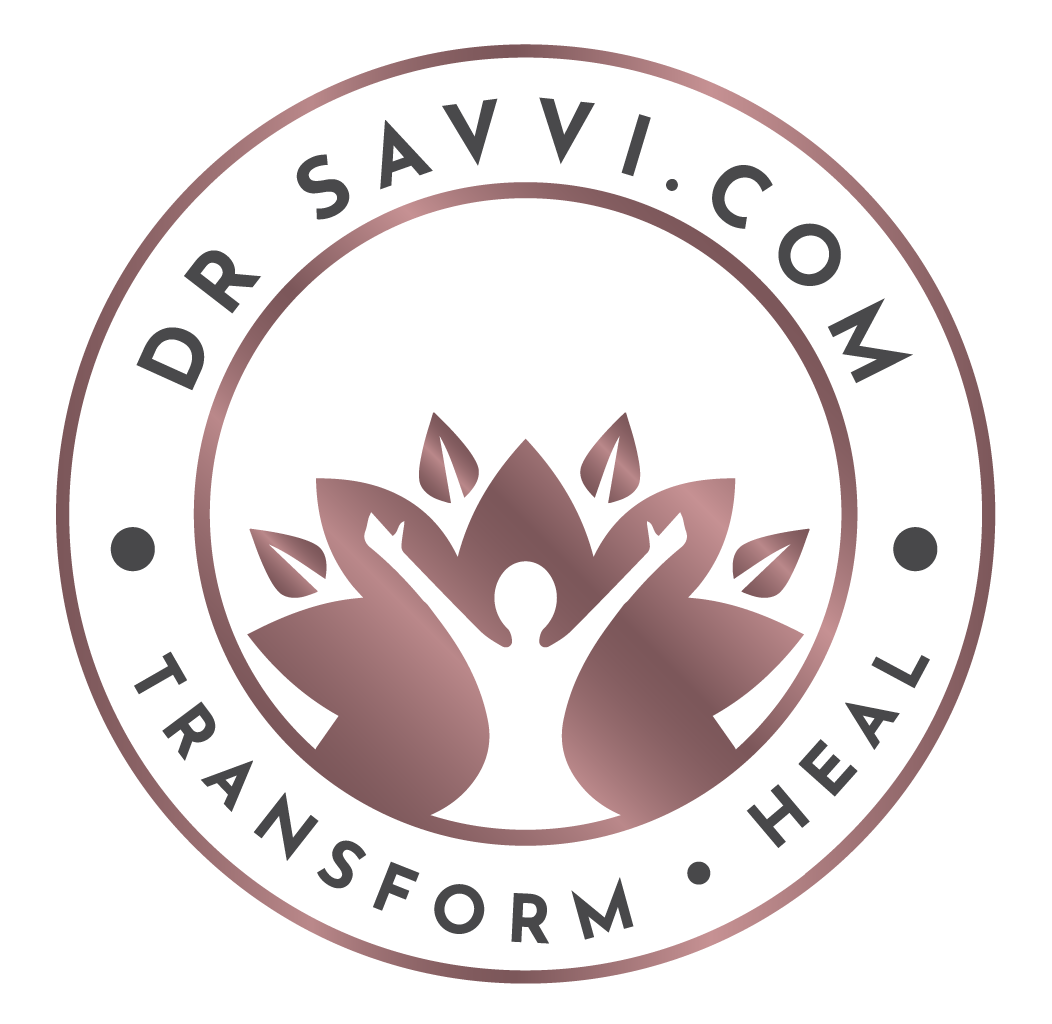The 3 telltale signs of Clinical Depression
- savvykr2007

- Apr 23, 2022
- 4 min read
There are 3 symptoms that researchers have found to be the most discriminating or reliable in identifying true depression versus being in a state of stress, burnout, pandemic melancholy.
These 3 signs/symptoms are not the same as the 3 core symptoms of Depression that Clinicians use to diagnose Depressive disorder.
If you're in a bad spot right now, you can have many of the symptoms that we see in depression and it can look very similar to depression. So how can you tell the difference?
Here are 3 symptoms that tend to consistently be present in people who are clinically depressed, and they are
1.Low motivation in combination with fatigue
2.Hopelessness or helplessness
3.Decisiveness

(Disclaimer: Depression comes with a number of symptoms that cause a certain level of impairment in your day to day functioning.
So I'm not saying that if you have one of these in isolation that you have depression.
People with Clinical Depression usually have one of these, along with several other symptoms like sleep problems,eating more/not eating, irritability, inability to enjoy things(anhedonia),trouble focusing, etc)
Low motivation + fatigue is usually what is responsible for people feeling like they're unable to get out of bed or do other important things.
I've had people who've doubted that their loved one was depressed say, “I don't think he's depressed. He's just lazy.”

A depressed person may lay in bed with a television on but they'll often say that they don't know what they watched because they weren't paying attention.
Often in those cases, the television is just to feel like someone's around, and they're either asleep or ruminating in their head about negative situations.
Another distinction between this and laziness is that laziness is not wanting to do something; with depression you cannot do it.
And it's not because there's something wrong with your body.
In your head everything is difficult and takes tremendous effort.
You may not be bathing regularly or doing all the basic self care routine because not only do you not have the energy but you don't really care.
It is difficult to muster the care & the desire to do things even though logically you know it is important.
Next is hopelessness or Helplessness.
Hopelessness is like a precursor to feeling like ‘why am I even alive?’
Everything is difficult with hopelessness.
Everything is futile.
It has no point.
Or another version of it is you could believe that you'll never get better.
You will never feel good again.
And you can believe this even if you've had five other examples of getting depressed in the past and recovering.

Helplessness makes you feel incapable of doing anything for yourself.
It's like you've been stripped of all of your defences and left metaphorically naked and vulnerable to the elements of life,it's a horrible feeling.
Imagine yourself being tied up and left on a highway with oncoming traffic.
You're just waiting to be run over.
What's it going to feel like?
How bad is it going to hurt when you're finally hit? This state of mind can bring a lot of anxiety to your depressed state.
The third telltale sign of depression is in indecisiveness.
If you look at the criteria for depression and the Diagnostic and Statistical Manual of Mental Disorders, this symptom is grouped with thinking and concentration problems with depression.
The inability to make a decision is partly related to problems with your focus and problem solving.
But in one of the studies, researchers saw that trouble making decisions was related to not being able to see the reward for your effort.
It's like you can't appreciate what's on the other side of the decision.
So you cannot think through weighing options or dealing with the outcome of your decision.
It goes back to everything feels difficult.
You can easily become overwhelmed with having to think about options.
And that can translate to not being able to get started with a plan.
The effort that it takes to analyse the situation and forecast how the decision affects you is just too much to work through.
Another aspect of the indecision can be doubting yourself so much that you don't trust your judgement.
All of these symptoms can and should get better with depression treatment but indecision is one of the symptoms that can linger to some degree even after other symptoms improve.

In fact, the researcher in that 2015 Study saw that remaining indecisive after all of your other symptoms improved was a risk factor for relapsing or having your depression return within six months of getting off of your medication or other treatment protocols.
People who were more decisive, stayed in remission longer.
We don't know exactly why this indecisiveness makes such a difference in outcome.
But it may be that being indecisive can be distressing and cause problems for you.
It can make you feel uneasy that you can't get things done because you're still struggling with execution because you can't make a plan. People around you can get annoyed that you just can't do what you need to do when you have all of the resources right there in front of you.
One way to make this better is to get a friend or therapist to help you break down situations and decisions into smaller issues that are easier to think through.
You can lose perspective with depression and have unrealistic expectations that you can't meet and not meeting these expectations perpetuates a feeling of failure and hopelessness.
But if you get help - making easier and more reasonable goals and plans that you can follow through with becomes possible.
Then you collect small wins along the way that can reinforce a positive image of yourself and a positive image of yourself gives you the momentum you need to make bigger and more significant decisions.
If you need help or someone you know needs help, please feel free to reach out.
With Love & gratitude,
Savvi




Comments